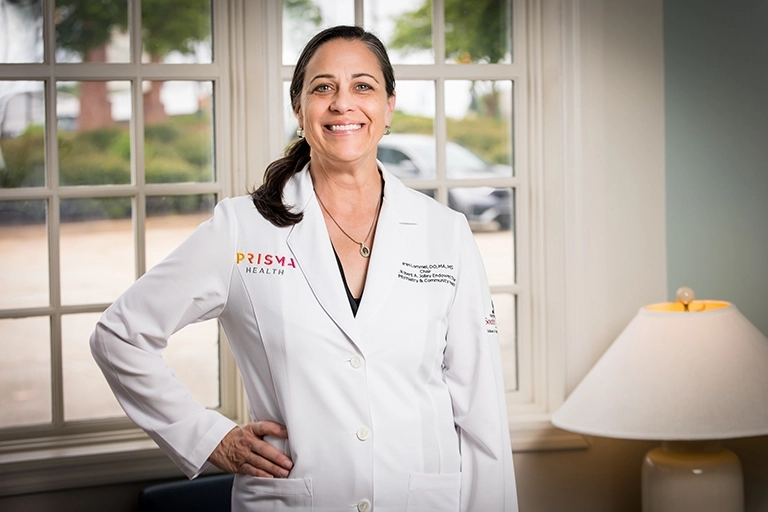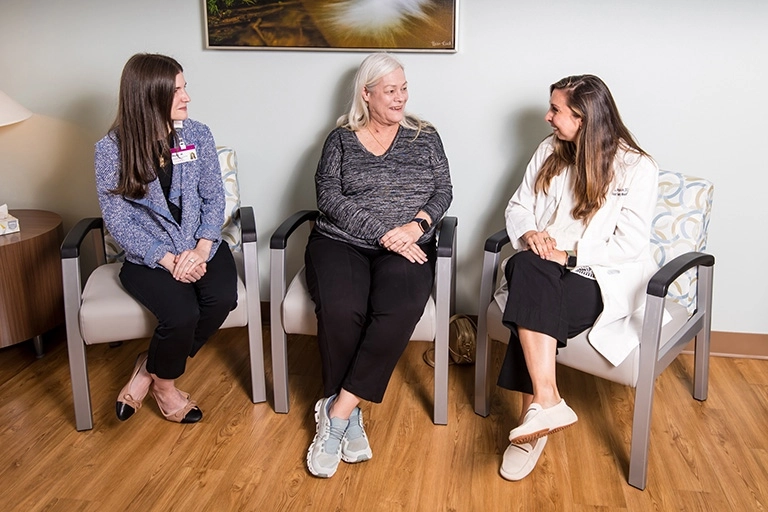


Dr. Brittany Peacock
Prisma Health
Dr. Brittany Peacock
Prisma Health
Better access and outcomes through collaboration
Many Americans who need mental health help never get treated, studies show.
Sometimes, they don’t know about or can’t access treatment. Or stigmas surrounding mental illness keep them away.
A new evidence-based approach called Collaborative Care aims to close that treatment gap by giving patients access to mental health services in the same primary care offices they visit for routine physicals, flu vaccines or other common health needs.
That simple change could bring big results. Experts say as many as one in five primary care visits involve mental health issues, but primary care doctors typically aren’t trained or equipped to handle them. These issues may then go untreated and intensify into crises that require treatment in a hospital emergency department.
Research shows that Collaborative Care can significantly improve patient outcomes and result in long-term cost savings, with multiple studies documenting greater improvements in both depression and anxiety outcomes compared to usual care.
Nancy Veino, a resident of Travelers Rest, S.C., says she benefited from Collaborative Care after a debilitating battle with tinnitus sent her into a depressive tailspin. As she received tinnitus treatment, the constant buzzing in her ears caused her so much emotional distress that her primary care provider, Physician Assistant Heather Cullen, realized Veino also needed mental health counseling. Veino received it through Molly McCurley, a Prisma Health behavioral health care manager stationed in the same practice.
“It was really great,” Veino said during a recent visit to the office. “Instead of [Cullen] saying to me, ‘let’s find you a therapist,’ and then having to wait for an appointment, and then maybe me saying, ‘I don’t want to wait,’ and then not doing it at all, I was able to start here right away and get on with the process of getting well.”
The practice, led by Dr. Brittany Peacock, was one of two South Carolina Prisma Health Collaborative Care pilot clinics the Endowment supported through a three-year, $475,000 grant that began in 2020. “As a young physician, I was attracting a lot of new patients, many of them with mental health issues,” she said. “The wait list was at least six months to get them in [for mental health care]. Collaborative Care has been such a blessing.”
Pioneered by the University of Washington, Collaborative Care asks primary care doctors to include routine depression screenings in their patient interactions. Behavioral health care managers such as McCurley, who are licensed professionals skilled in therapeutic interventions, receive assistance from a psychiatric consultant in providing evidence-based treatment recommendations back to the primary care provider.
Prisma Health’s results have been excellent.
An analysis of 33 Collaborative Care patients showed per-patient, per-month medical costs of emergency department admissions and other hospitalizations plummeted from $2,330 before the program to $394 after. Early intervention at the primary care level can help keep patients’ conditions from escalating to urgent or emergency needs, said Jessica Anderson, manager of Prisma’s behavioral health program. Prisma Health’s Collaborative Care project now includes about two dozen clinics. Spurred by the results, South Carolina officials extended Medicaid reimbursement coverage to the model.

Dr. Karen Lommel, Robert A. Jolley Endowed Chair of Psychiatry and Community Health, Prisma Health
“Many children in South Carolina have Medicaid, and we are excited to expand this program in our pediatric clinics,” said Dr. Karen Lommel, the Robert A. Jolley Endowed Chair of Psychiatry and Community Health with Prisma. “Being able to open this up is a major step in access to mental health care in South Carolina.”
Lin Hollowell, head of the Endowment’s Health Care grantmaking area, applauded Prisma Health’s success with Collaborative Care.
“This is a great example of the innovation the Endowment looks to support,” he said. “Through Collaborative Care, Prisma Health leaders saw a need in their community and took action to fill it by promoting access to an evidence-based program that can improve outcomes for patients with medical and behavioral health needs.”

Behavioral Health Care Manager Molly McCurley (left), patient Nancy Veino (center) and Dr. Brittany Peacock discuss Veino’s physical and mental health needs.
This is a great example of the innovation the Endowment looks to support. Through Collaborative Care, Prisma Health leaders saw a need in their community and took action to fill it by promoting access to an evidence-based program that can improve outcomes for patients with medical and behavioral health needs.

LINWOOD B. HOLLOWELL III
Director of Health Care
The Duke Endowment






